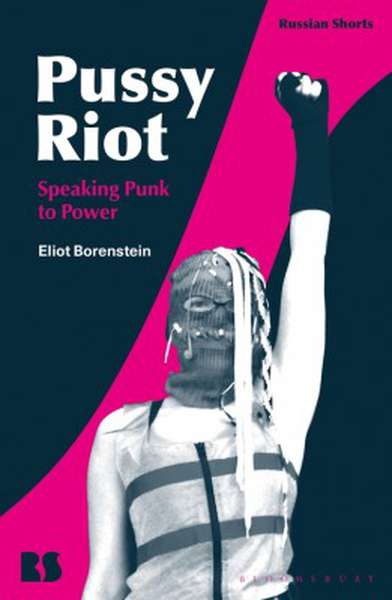It would be appropriate to refer to Pussy Riot not only as revolutionary art collective, but a cultural phenomenon that has itself firmly established on international terrain. Having first risen to prominence via their anti-Putin protest performance in a cathedral in Moscow, there have been a myriad of misconceptions about the conglomerate.
Speaking Punk to Power’s approach is informed by not only the core messages but investigates and contextualises their objectives. Doing that, Eliot Borenstein not only chronicles the milestones of their oeuvre but also sheds light on the realities behind the global hype that ensued.
While the book is centred around Pussy Riot, it raises wider reaching questions about societal phenomena and how protest has evolved over the last couple of decades, both in terms of the reasons but also the deliberate staging of it. An interesting question that is shed light on is how protests changes if the protagonists become pop stars themselves and if celebrity status dilutes the agenda and reasons for why they started their actions in the first place. Given the aforementioned, the book should be interesting for anyone remotely interested in subcultures, art movements, politics, the dance with taboos and the interplay of it all.
The takeaway from Borenstein’s elaboration is that there is more to Pussy Riot than mere activism and what meets the eye. He unpacks underlying layers of meaning, which gets specifically interesting when it comes to the importance of syntax, subversive use of meaning and the questioning of gender concepts the Russian feminist disrupters propagate, with the credo that anyone can be a Pussy Riot at the very core.




